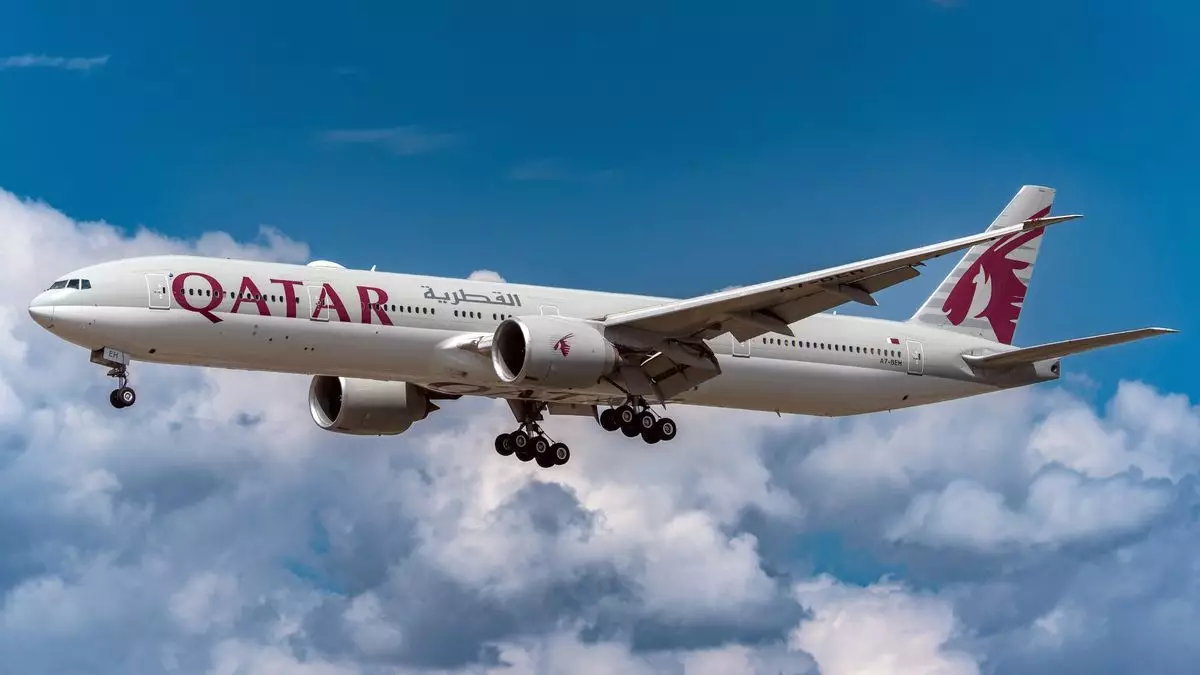In a significant move reshaping the aviation landscape, Qatar Airways has announced a remarkable order for up to 210 widebody jets from Boeing, valued at an eye-watering $96 billion. This staggering figure, while impressive, glosses over the reality of airline negotiations where discounts on list prices are common. A closer look, as reported by the Wall Street Journal, reveals that the true financial implications of such a deal could differ markedly from headline figures, raising questions about the nature of commercial aircraft transactions. Nevertheless, this order represents a pivotal moment for Boeing, marking both its largest widebody and Dreamliner orders to date.
The deal was formalized during a signing ceremony in Doha, coinciding with President Donald Trump’s state visit. The presence of high-profile figures such as Boeing’s CEO Kelly Ortberg and Qatar Airways’ CEO Badr Mohammed Al Meer, alongside Sheikh Tamim bin Hamad al-Thani, underscores the significance of this partnership. The audience bore witness to a moment that could redefine corporate alliances and influence global aviation trends. Trump hinted that around 160 of these jets are confirmed orders, with the remaining options poised to reshape future fleet strategies.
A Symbolic Gesture: The Dual Nature of Aviation Diplomacy
The signing ceremony is not just about aircraft; it symbolizes a larger diplomatic relationship between the United States and Qatar. The concurrent news regarding Qatar’s royal family offering a Boeing 747 as a gift to the U.S. for use as Air Force One adds an intriguing layer to this narrative. Trump’s intent to accept the gesture, despite ethical reservations raised by some quarters, illustrates the complexities of international relations where economic and symbolic transactions frequently intersect. By stating that “Only a fool would not accept this gift,” Trump positions himself as both a pragmatist and a negotiator, highlighting the ever-blurring lines between national interest and ethical considerations.
This scenario raises pressing questions about the implications of such high-stakes agreements, especially in terms of transparency and accountability. The large-scale purchase of aircraft, while a boon for American manufacturing and employment, demands scrutiny over the motivations behind the deal and its alignment with national interests.
The Future of Aviation: Trends and Implications
As airlines around the globe grapple with sustainability challenges, the move by Qatar Airways to invest heavily in advanced aircraft like the Boeing 787 Dreamliner and 777X may indicate a trend toward modernization and efficiency. The investment in cutting-edge technology likely ties into broader industry shifts focusing on environmental impact and fuel efficiency. Airlines are under increasing pressure to reduce their carbon footprints, and Qatar Airways’ decision may serve as a blueprint for others contemplating similar transitions.
However, this deal also signals a competitive response to the rising influence of other manufacturers in the global aviation market. As Boeing faces challenges in maintaining its market share against Airbus and other competitors, Qatar’s commitment illustrates a vital lifeline that could aid in reclaiming its dominance in the sector.
While the announcement of such an ambitious fleet expansion resonates with optimism, it also underscores the delicate balancing act of modern aviation amid economic uncertainties and geopolitical tensions. The ramifications of this order will likely define Boeing’s trajectory in the years to come while propelling Qatar Airways into a new era of operational capability and market influence.


Leave a Reply